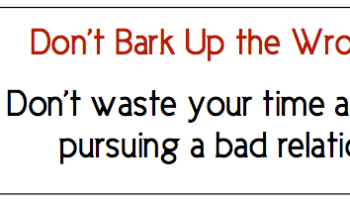Monday's first presidential debate between Democratic and Republican nominees Hillary Clinton and Donald Trump was the most-watched in the US since the 1980 match-up between Jimmy Carter and Ronald Reagan. It attracted some 84 million viewers on 13 television networks, not including online watchers, National Public Radio reported.
It is widely held that in the showdown, politician Clinton, who did her homework, crushed seemingly unprepared and ill-informed Trump who often ranted, though the polls afterward showed a different picture. The CNN/ORC poll immediately after the debate found 62 percent of respondents thought Clinton won the debate, while just 27 percent felt Trump triumphed. Yet online polls with wider coverage of respondents overwhelmingly showed Trump was the winner.
However, no matter who won, it won't make the debate as significant as it is supposed to be. The two debaters deviated from substantive statements on the real problems that matter to the country, becoming embroiled in personal attacks against the bad records of each other. They did not appear statesmanlike, but rather like TV stars competing to amuse the audience for approval. Neither seriously mapped out a trustworthy blueprint for the country. In this sense, whoever eventually wins won't quell the public doubts about their capacity to steer the US out of its plight of worsening domestic and external situations.
It is widely recognized that the US, baffled by the quagmire in the Middle East and rampant terrorism, has seen its leadership decline and is unable to lead the world to squarely face up to a slew of challenges. The latest debate gives ammunition to the judgment.
The US president is in many cases the best proof of US leadership. But neither of the candidates looks capable of helping the superpower regain its global leadership in a multipolar world. Clinton, a smart politician that looks so presidential in comparison with Trump, doesn't seem able to inject anything new to the US given her poor performance as secretary of state, let alone her credibility issues. Meanwhile, caustic Trump has risen by giving voice to the anger of conservative Americans, but that's all he can offer in front of the severe tests facing the country. His ridiculous policies that woo US voters will be disastrous for US clout and raise so many uncertainties about the direction of the US.
In the final analysis, the presidential election has become a game to choose who is the least unfit to rule the superpower. As the influence of its leadership slides, the world needs to be ready for it. - Global Times
Clinton-Trump debate falls into trite format
The first US presidential debate between the Democratic and Republican candidates concluded Monday night, drawing unprecedented attention from around the world. No previous two contenders have displayed more differences in personality, vision and background than Hillary Clinton and Donald Trump, making this year's race to the White House all the more enthralling.
Many commentators thought Clinton's versed performance well-demonstrated her background as a veteran politician. Trump, a bit inexperienced, didn't display many faults and restrained his flamboyant style. In general, it was a trite debate.
As Clinton has been exposed to various scandals during the campaign, she tried to highlight her honesty and prudence. Many people have doubts about her integrity, however they are also accustomed to candidates' empty promises.
Trump wasn't faking. But the problem is that Trump does not make many Americans feel secure, and they worry he might be capricious if he is elected. This debate did not reassure people.
Clinton and Trump are perhaps the most controversial candidates in the history of US presidential elections. American society has different concerns about the two candidates, as neither is a role model for the country. With only less than two months before the election, voters have no better alternative than choosing the least worst candidate.
Be it in Europe or Asia, Western countries or emerging economies, few people look forward to the result of the US election or believe the leadership transition will promote global harmony. The two candidates are publicly making their calculations and revealing their selfishness to the world. For them, it seems the whole world owes the US.
Both candidates mentioned China several times in their first debate. Trump was particularly arrogant, and has spread the mentality that the US has suffered losses from its relations with China, and is also taken advantage of by its allies. This mentality, together with Washington's powerful strategic tools, poses potential threats to global stability.
The US will not stop pursuing its privilege as a superpower, and this will for sure challenge the status of China and Russia. While Clinton tends to make the current system more favorable to the US, Trump is more straightforward in maximizing benefits. The China-US relationship will witness more difficulties in the future. The US will also weigh benefits from its ties with China with those from a tougher China policy, and evaluate whether it could afford the price of jeopardizing its relationship with Beijing.
Chinese do not want to see China pressured by Clinton, and meanwhile are uncertain of Trump's presidency. Let Americans worry about who will end up in the White House. Chinese should be ready for the change in the US presidency. We have many tools to respond, enough for the future US president to feel the dread if it makes trouble with China. Such tools matter more than the goodwill of American presidents. - Global Times
Related posts:
Aug 12, 2012 ... As US election fever sizzles, pressure mounts to spread the militarist ... But
whether China is in the picture or not, US policymakers have a ...
Oct 15, 2010 ... "In an election, it is always useful to accuse an opponent of being disloyal to his
nation. Since some Americans believe that China is more ...


 First round debate By Wang Xiaoying
First round debate By Wang Xiaoying





